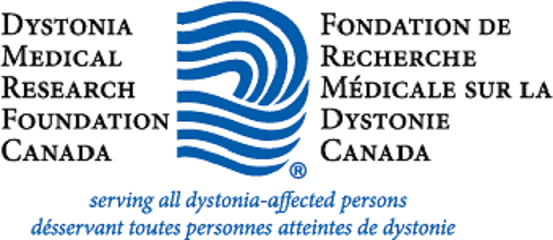The Daily Gleaner
By: Kelly Cormier
March 12, 2016
Tim Williston’s life took a dramatic turn 12 years ago when he received an unexpected medical diagnosis. But today the 60-year-old Fredericton man is living life to the fullest and wants to help others with the same disorder by telling his story and offering support. Williston has dystonia, a neurological movement disorder that causes the muscles to contract and spasm involuntarily. The first symptoms hit in 2004 when Williston and his wife, Nancy, were on vacation.
“I felt this very, very slight movement in my head and I didn’t know what it was,” explained 'Williston in a phone interview from his winter home in Florida. “I even told Nancy I felt like my head was moving, could she see it? She looked at me for like five minutes and said she didn’t notice anything, but I felt it. We came back home and everything was good.”
But during an anniversary getaway Williston passed out in the shower; his wife found him and it looked as if he was having a seizure. “Shortly after that, in a couple or three weeks, my head starting moving really bad” said Williston. “I went to my family doctor and he didn’t know what it was.” Williston was referred to a local neurologist who was also stumped.
He was eventually referred to another neurologist who specializes in movement disorders. The diagnosis was dystonia, something Williston, who was 48 at the time, had never heard of before. “As a matter of fact, even my family doctor who has been in practice for 30 years had not heard of it either. I’m his only patient, to my knowledge even to this day, that has dystonia”
Williston said dystonia is rare, with only 300,000 cases in North America. “The kind of dystonia I have is cervical dystonia, which affects the muscles in my neck, my upper back, and my lower head. That’s why my head was moving all the time, back and forth to the left and to the right. My head would just bounce all over the place.”
Williston said he medication helped for awhile, but then the symptoms got bad again. He even tried botox injections in the back of his neck to try and freeze the muscles that were overacting, but it didn’t work.
“Then I went to Halifax and met with a neurosurgeon and was told I had one other option – deep brain stimulation surgery. So what they did is put electrodes deep into my brain. Then they connected those electrodes to the nerves that were making my neck move and ran a wire down into a little battery pack which I have in my belly that is continually charging the electrodes that are in my brain”
It worked.
“It took a couple of months but eventually my head stopped moving, I thought I was in heaven”. That was in 2006, and Williston said he got his life back. “Before the surgery I was pretty much a vegetable. The only time I ever got relief (from the head movement) was when I slept. And I couldn’t even sleep in a bed because my head wouldn’t stop moving. I actually slept in a recliner wingback chair for two years. I would wedge my head into the wing and that would stop the movement long enough to allow me to go to sleep. “I’d sleep three or four hours, wake up because my head would start moving again, and then I’d wedge my head in again. Every moment I was awake my head was moving. It was extremely painful.”
Williston said because of the surgery he’s a normal person again. He said he takes one day at a time as there is no cure for dystonia and there’s always the chance his symptoms could return. Williston is an area contact for Dystonia Medical Research Foundation Canada and he’s trying to start a support group in southwestern New Brunswick to help others with dystonia.
“My email address and phone number is on their website and people can give me a call if they want to talk. I’m here to chat and try to help them in any way I can.” Williston said he doesn’t give out medical advice but is available to help people get through the day. “What I’m trying to do is get a group of people who also have dystonia so that we can sit in a room and talk about things, maybe share different ways to cope.”
Williston said a support group can help people share what may be working for them. “I don’t have all the answers, I’m only one person. But if you get a group of people together that all have the same disease perhaps they can help someone else get through the day. And if people just want to sit an listen that’s OK too.”
The Dystonia Medical Research Foundation Canada can be reached by calling 1-800-361-8061 or at dystoniacanada.org.
“I just want others with dystonia to know they are not alone and there is help available.”
